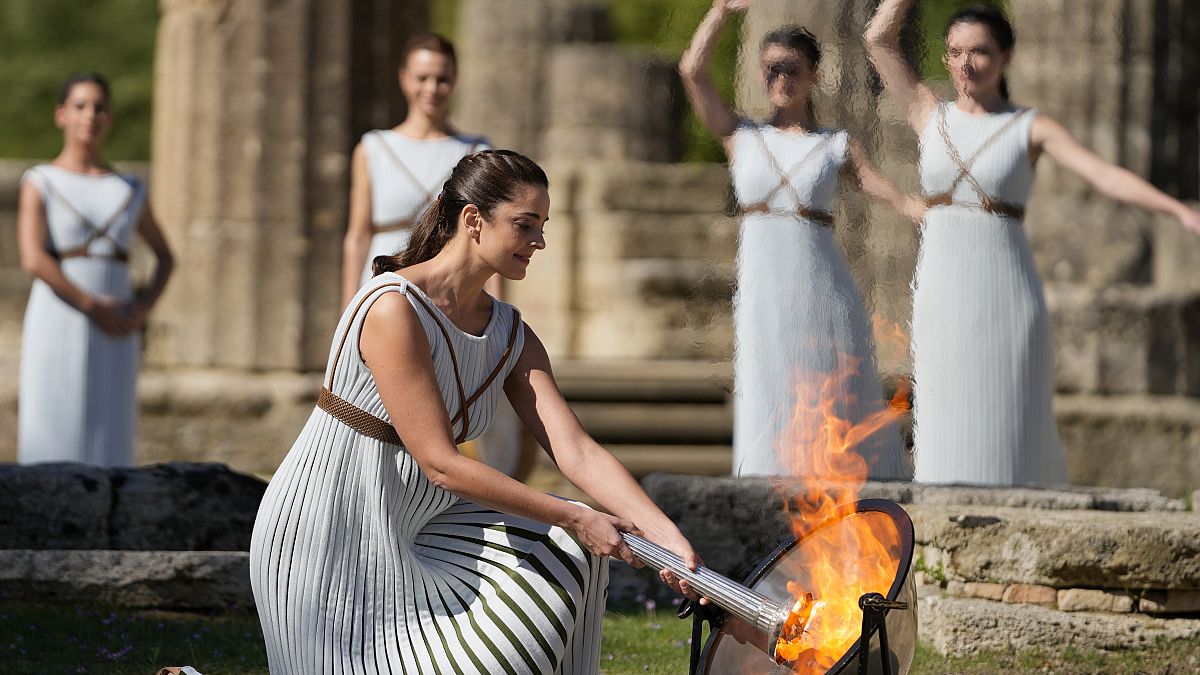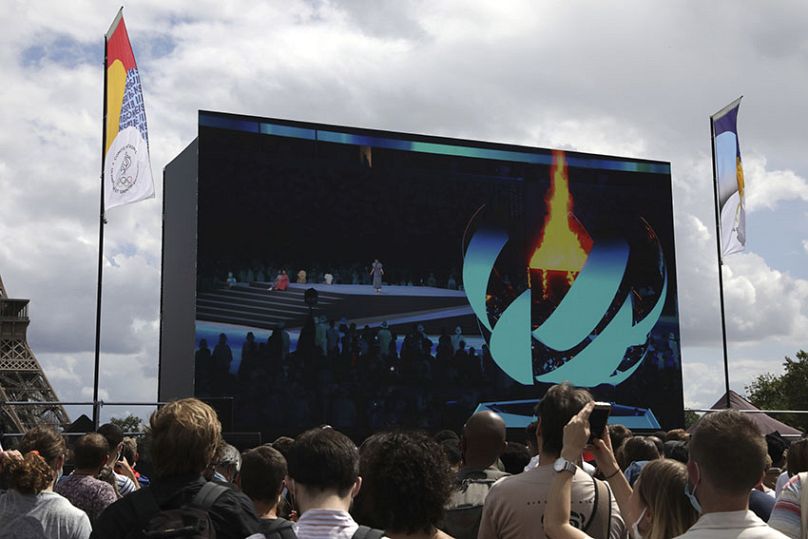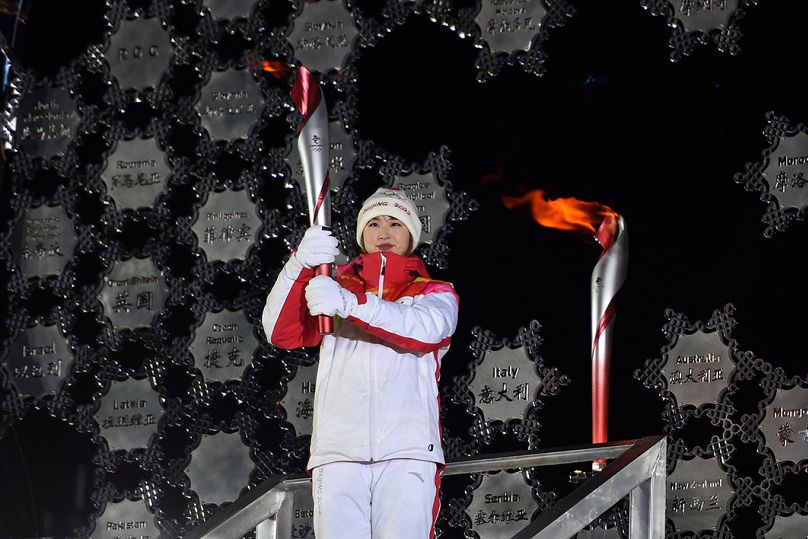These French towns say the exposure of hosting the Olympic flame is not worth the bother - or the cost.
On its journey to France's capital for the Paris Summer Olympics 2024, the Olympic torch won't pass through Haute-Loire. The glorious Olympic flame, local authorities say, is simply too expensive.
Haute-Loire is not the first French department to turn its back on this iconic symbol of the Games. Seven others - Indre-et-Loire, Lot-et-Garonne, Creuse, Haute-Vienne, Loire-Atlantique, Côtes-d'Armor and Orne - have already said they won’t take part in the traditional Olympic torch relay.
The departments were asked to spend 150,000 euros (180,000 euros including taxes) to organise the passing of the torch in their territories, a sum that local authorities have described as "exorbitant."
The same amount of money was requested from all French departments involved, regardless of their available sports budgets. Something that Haute-Vienne’s Vice President in charge of sports, Thierry Miguel, said he was "shocked" about.
These departments would rather spend their limited budget on actual sporting events. Some of which have already done so.
In 2021, the sports budget of Haute-Loire was 1.6 million euros. The department has already spent part of that budget to host the 2022 edition of the Six Days of Enduro, an international motorcycling race, this summer.
What is the Olympic torch relay and why is it important to France?
The tradition of the torch relay is quite new in the context of the Olympics. It was only introduced during the infamous 1936 'Nazi Olympics' in Berlin.
Despite a commonly held belief, the Olympic flame does not actually burn in perpetuity. In fact, the torch is lit only a few months ahead of each Olympics in Olympia, the Greek city where the ancient Games were originally held every four years.
From there, the flame is carried to the city hosting the Olympics on foot, traditionally by runners. In the case of Paris 2024, the torch will be carried from Greece to France by boat to make the flame's journey more sustainable.
The last runner completing the relay is the one millions of people will watch enter the stadium to light up the Olympic cauldron during the Games’ opening ceremony.
It's a highly symbolic gesture that echoes the theft of fire by the Titan god Prometheus from Zeus. Prometheus's gift of the flame to humanity is considered to mark the beginning of civilization. The torch also mimics the sacred fires traditionally burning in many ancient Greek sanctuaries, including the one in Olympia.
For France, the Olympic torch relay is also a chance to showcase itself to the world.
According to organisers, the relay will "offer a unique opportunity to shine a spotlight on the regions of France, its heritage and savoir-faire as the torch travels through towns, villages and iconic locations that will benefit from the focus of the Games to reveal themselves to the world."
In France's ambitious plans, the torch relay will also set foot in at least one of the country's overseas territories (which one specifically has yet to be decided).
Why is the Olympic flame so expensive?
Running while holding a burning torch sounds hard enough. But doing so while crossing borders, buzzing cities and busy roads is a logistical nightmare - and an expensive one at that.
When London hosted the Summer Olympics in 2012, the country spent a staggering 9 billion pounds to stage the Games. Out of this crazy sum, 6 million were spent just on the torch relay.
Different council authorities were asked to spend different amounts for the flame to pass through their areas (unlike their French counterparts), but on average they each spent around 40,000 pounds, according to figures obtained by the UK Press Association under the Freedom of Information Act. Other councils spent over 200,000 pounds.
According to the local authorities, most of that money was spent on making sure the passage of the flame happened securely, closing off roads and deploying thousands of street marshals setting up barriers and managing curious crowds.
Then there was the cost of the celebrations, and the necessary clean-up afterwards.
France is about 2.3 times bigger than the UK, suggesting the cost of the torch relay could be more than double the one paid by British local authorities in 2012.
What is the benefit of hosting the Olympics?
The refusal of various French departments to take part in the Olympic torch relay mirrors a deeper issue taking shape in the international landscape.
The cost of hosting the Olympic Games have skyrocketed in recent years, while not bringing real economic benefits to the countries who agree to stage such a mega-event.
Soaring costs have led to fewer and fewer countries pushing themselves forward as Olympic host candidates, a problem that has pushed the International Olympic Committee to call for a reform of the process of selecting the host city.
Will the 2024 Olympic torch relay still go on?
While more French departments could be turning their back on the Olympic flame, the organising committee for the Paris 2024 Olympics, Cojo, said a "very large majority of departments have already welcomed" the relay.
According to Cojo, the 150,000 euros asked of the departments was so that the flame could cross "the maximum number of territories" on its way to Paris.
But they have specified that the relay is funded "for the most part by the committee and its partners" and will go ahead no matter what.





